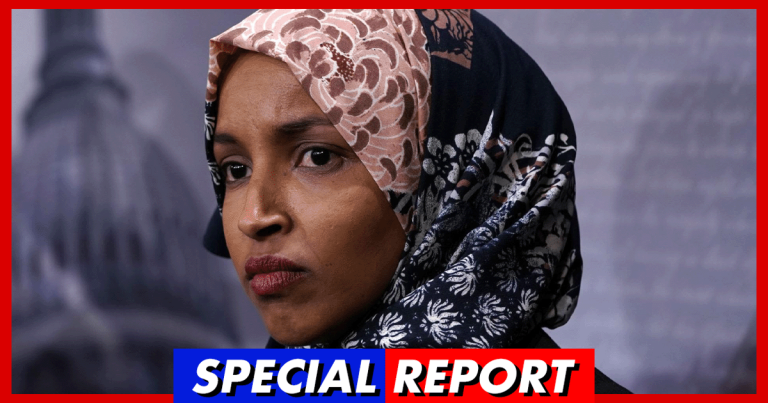
Politicians who constantly criticize America often forget to look in the mirror. They enjoy the freedoms and opportunities of the United States while claiming our nation is fundamentally flawed. When these same leaders remain silent about serious problems in other countries – especially their own homelands – it raises important questions.
This pattern of selective outrage becomes especially clear during national observances that celebrate American progress. While no country is perfect, acknowledging how far we’ve come is an important part of patriotism and honest reflection.
Rep. Ilhan Omar recently found herself in an awkward position after posting a Juneteenth message on social media. Her original post specifically mentioned the end of slavery in America:
From ‘BizPacReview’:
“160 years ago on June 19, 1865, slavery ended in this country,” she wrote. “Today, we celebrate Black freedom, resilience, and achievement, and continue the work to root out systematic racism from our policies and institutions.”
The Minnesota congresswoman’s post quickly drew attention from conservative commentator Gunther Eagleman. He pointed out a fact Omar apparently didn’t want to discuss. “Somalia still has slaves. Ilhan should go fight to free her own people,” Eagleman wrote in response to her post.
What happened next spoke volumes. Omar deleted her original post entirely.
A Revealing Revision
Shortly after removing her first message, Omar posted a new Juneteenth statement. The revised version carefully omitted any direct mention of slavery:
“On Juneteenth, we remember that freedom is not always swift but it is always worth the fight. It’s a powerful reminder of how long justice can take to reach those who deserve it most,” her new post began.
The second paragraph remained identical to her original message. It continued with: “Today, we celebrate Black freedom, resilience, and achievement, and continue the work to root out systematic racism from our policies and institutions.”
This strategic revision didn’t go unnoticed. Social media users continued to confront Omar about the glaring omission. Apparently, some truths are too inconvenient even for Twitter.
The Somalia Slavery Crisis
According to a 2023 report from Walk Free, an estimated 98,000 people currently live in modern slavery in Somalia. That’s about 6.2 slaves for every 1,000 people in the country.
The report gave Somalia a shocking 98 out of 100 score for “vulnerability to modern slavery.” Meanwhile, the government received just 18 out of 100 for its response efforts.
One user pointed out the historical context: “The slave trade was quite popular in Somalia, before Italy put a stop to it in 1893. Yet today, slavery persists in Somalia.”
Another commented: “It’s odd that you’re obsessed with slavery that existed hundreds of years ago while turning a blind eye to current slavery in your own home country.”
A Pattern of Anti-American Rhetoric
This incident follows Omar’s recent appearance on “Democracy Now.” There, she made startling claims about the United States.
“To have democracy, a beacon of hope for the world, to now be turned into one of the worst countries, where the military are in our streets without any regard for people’s constitutional rights,” Omar said during the interview.
The congresswoman added that “this is not the country we were born in, and this is not the country we believe in.” This comes despite having sought refuge in America as a child and now serving in its Congress.
The contrast is striking. Omar harshly criticizes America yet remains silent about human rights issues in Somalia. While focusing on America’s past, she says nothing about ongoing slavery in her birth country.
Perhaps most telling was how quickly she deleted her post when confronted with uncomfortable facts. Instead of addressing valid points about modern slavery, she simply erased the evidence and posted a sanitized version.
The lesson isn’t that America is perfect – no nation is. But honest conversations require acknowledging both how far we’ve come and how others still struggle with issues we addressed generations ago.
Key Takeaways:
- Rep. Omar deleted her Juneteenth post mentioning “slavery ended” after being confronted about ongoing slavery in Somalia
- Current estimates show 98,000 people living in modern slavery in Somalia, with minimal government response
- Omar’s revised post strategically removed all mentions of slavery while keeping other elements intact
- This incident highlights a pattern of criticizing America’s past while remaining silent on current human rights issues elsewhere
Sources: BizPac Review, townhall.com


